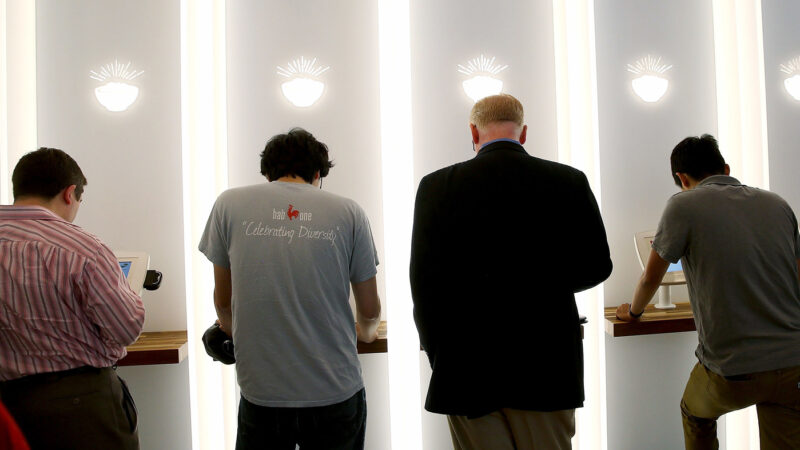In the Media
NPR: As Our Jobs Are Automated, Some Say We’ll Need A Guaranteed Basic Income
09. 24. 2016
"What would it mean to give people money that they didn't work for? And that's a notion that challenges a lot of people."

This segment originally appeared on NPR’s A Nation Engaged.
Some experts say the only answer is a government-guaranteed paycheck that would allow people to buy food and housing. That would not only help the individuals but would help keep the economic wheels spinning and generate tax revenues.
NATALIE FOSTER: Silicon Valley’s interest in the universal basic income is one part guilt and one part optimism.
KIM: That’s Natalie Foster. She’s a fellow at the Institute of the Future. It’s a nonprofit research organization in Palo Alto. Foster says techies understand that there’s a lot that seems impossible about the basic income. And right now they’re in an inquiry and research phase. They’re hosting panels that ask…
FOSTER: What would it mean to give people money that they didn’t work for? And that’s a notion that challenges a lot of people.
KIM: Chris Hughes says, whether you like the idea or not, there won’t be an alternative because decent-paying jobs are disappearing for millions of people. He’s a co-founder of Facebook and active in the basic-income movement.
CHRIS HUGHES: The reality is that work has changed. You know, 40 percent of jobs are now contingent, meaning they’re part-time, independent contractors, Uber drivers.
KIM: Hughes says that shift has already left middle-class Americans economically insecure. And that feeling of insecurity is evident in this tumultuous presidential election.
HUGHES: I think there’s a sense that our economy is broken in many ways. But rather than try to restructure our economy so it looks like the 1950s, I think we have to be honest with ourselves.
KIM: That those days aren’t coming back – machines and software are replacing workers every day. And Hughes says that means basic income isn’t an idea for the distant future but one we need to consider today. For NPR News, I’m Queena Kim.
